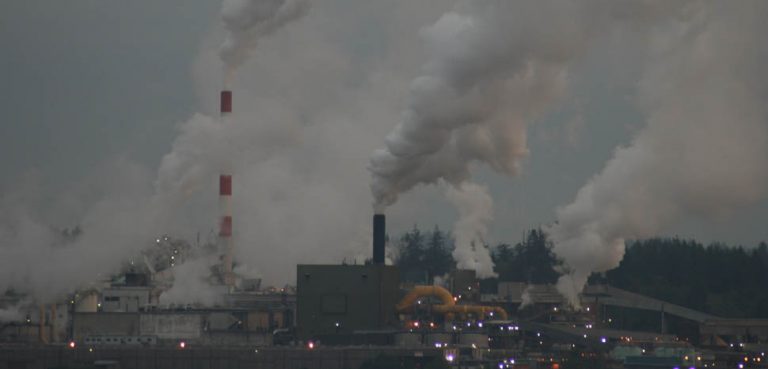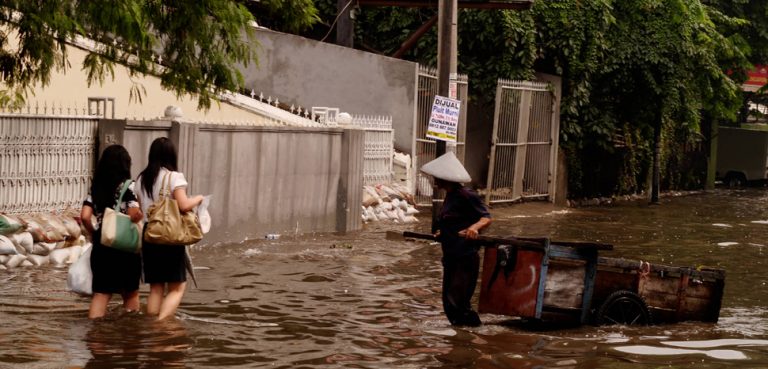With sea levels rising, Nguyen Van Bien, a 58-year old rice farmer, in the Mekong Delta, recognizes that climate change adaptation requires all hands on the frontlines of rice paddies, especially non-governmental organizations (NGOs) and youth. This approach is both complex and essential for achieving Vietnam’s ambitious goals for sustainable and resilient development and conservation.
In Vietnam, decision-making on environmental issues is the exclusive domain of the Communist Party. No one disputes that the nation’s relentless pursuit of economic growth has lifted millions of lives out of poverty over the past decades, but it has also resulted in significant environmental degradation and loss of biodiversity. Now with the dire impacts of climate change, the region’s global economic engine stands at a critical crossroads, balancing economic expansion with sustainability.
This may partly explain why the party-state has at times recognized the participation of NGOs in shaping policies, programs, and plans. For example, the 2008 National Target Program on Response to Climate Change highlights the role of NGOs in critiquing policies, raising awareness, and supporting the implementation of disaster-mitigation measures.
The country’s young policy technocrats recognize that these organizations bring diverse expertise, resources, and networks, which can enhance the effectiveness of climate initiatives. More often, they operate at the grassroots level, ensuring that adaptation strategies are inclusive and reach vulnerable communities. This is certainly true in the challenged Mekong Delta, once referred to as the ‘rice bowl of Vietnam,’ where increasing numbers of desperate farmers watch the sea level encroach, destroying their orchards and eroding rice paddies.
Credit must be given to cooperation between the Party and NGOs in biodiversity conservation, and climate change adaptation practices undertaken to rehabilitate damaged landscapes and protect critical habitats. This commitment to reviving its war-scarred landscapes and wildlife is now seen in over 173 wildlife conservation zones, including 34 national parks, and 66 nature reserves.
Furthermore, NGOs like PanNature, the Centre of Marinelife Conservation and Community Development (MCD) and the Mekong Environment Forum continue their dedication to conservation and sustainability. (By way of a disclaimer, I am a co-founder of the Mekong Environment Forum, located in Can Tho, Vietnam).
The keys to the success of a grassroots environmental movement are networks of water experts, journalists, government officials, students, NGO representatives and provincial communities who reinforce and empower the voices of local citizens.
Over the last two years, there has been a spate of closures of environmental organizations in Vietnam, as well as the arrests of NGO leaders reflecting among political leadership the threats to official ideology. It’s noteworthy that the country’s 2013 Constitution recognized non-government organizations as contributors to the country’s development and called for a legal framework to protect their rights. However, this framework has been rejected by Communist Party Members and the term, “civil society” continues to be sensitive among Party officials. In fact, the Politiburo’s Directive 24 aims to curb foreign influence in policy making and prevent groups inside and outside the country from using increased international cooperation to promote any civil society.
Nevertheless, authorities recognize the challenges posed by climate change and a more sustainable greener growth model is at the core of their development agenda. As a result, engaging youth is vital, since they represent the future and are increasingly vocal and active in climate advocacy. This activism is seen in the country’s NGO’s Climate Change Working Group (CCWG), a network that brings together international and Vietnamese NGOs, development agencies, and professionals to address climate change. It was established in 2008 and includes over 100 NGO members.
With Vietnam’s long, densely populated coastline vulnerable to typhoons, floods, droughts, and landslides, and as one of the fastest-growing per-capita greenhouse gas emitters, it’s no surprise that young people are eager to tackle the environmental crisis.
By leveraging the unique strengths of NGOs and youth, Vietnam can create a more resilient and adaptive society, capable of addressing the multifaceted challenges of climate change.
Vietnam, particularly in the Mekong Delta region, prioritizes climate change adaptation over mitigation due to its acute vulnerability to the immediate and severe impacts of climate change. This region remains a critical area for agriculture and fisheries and faces significant threats from rising sea levels, saltwater intrusion, and increasingly erratic weather patterns. These climate changes jeopardize the livelihoods of millions who depend on the region’s rich natural resources.
Adaptation strategies, such as building resilient infrastructure, improving water management, and diversifying crops, are vital for safeguarding communities and ensuring food security. While mitigation efforts like reducing greenhouse gas emissions are essential for long-term global climate stability, the urgency of adaptation measures in the Mekong Delta stems from the need to protect people and ecosystems from current and imminent risks.
Local non-governmental organizations (NGOs) in Vietnam play a pivotal role in addressing climate change issues through a range of activities that complement governmental efforts. Some of these contributions include: community education and awareness, workshops, and stewardship educational campaigns, capacity building and empowerment, training in agricultural practices, water management and advocacy development to influence policy.
For example, the Mekong Environment Forum’s Mekong Security Atlas, an open-access web-GIS citizen platform, allows citizen scientists to contribute datasets and report on environmental issues. The Atlas was established in March 2019 and, supported by the Earth Journalism Network, is recognized as an effective natural resource management tool by local provincial governments, international NGOs, and international water organizations.
“The Mekong Environment Forum and citizen science programs are promoting a bottom-up approach in climate change adaptation in the Mekong Delta,” claims Nguyen Minh Quang, co-founder of the Can Tho-based non-government organization.
Moreover, other NGOs are involved in the implementation of adaptation projects, such as the construction of climate-resilient infrastructure and research and data collection through citizen science outreach activities. Finally, community-based groups often collaborate with international organizations, government agencies, and the private sector to mobilize resources for climate action.
Hope lies in the government’s recognition of the local knowledge of farmers, like Bien, and NGOs in Vietnam. These individuals provide crucial insights and lend their voices to the country’s efforts to address climate change, itself perhaps one of the most destructive of all challenges the country has ever faced.
James Borton is a non-resident senior fellow at Johns Hopkins/SAIS Foreign Policy Institute and the author of Dispatches from the South China Sea: Navigating to Common Ground.
The views expressed in this article belong to the author(s) alone and do not necessarily reflect those of Geopoliticalmonitor.com.




